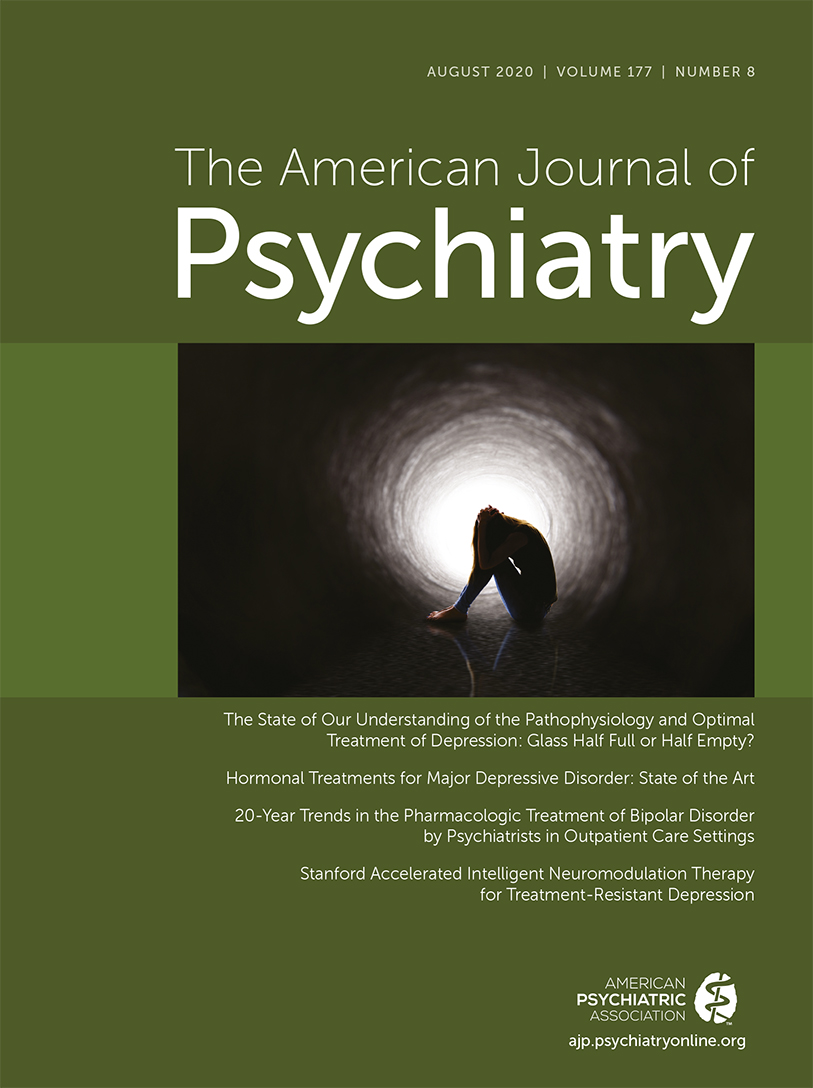Methodological Shortcomings Undercut Statement in Support of Gender-Affirming Surgery
To the Editor: The article by Bränström and Pachankis (1) has the stated aim “to ascertain the prevalence of mood and anxiety disorder health care visits and antidepressant and anxiolytic prescriptions in 2015 as a function of gender incongruence diagnosis and gender-affirming hormone and surgical treatment in the entire Swedish population.” The authors conclude that “the longitudinal association between gender-affirming surgery and reduced likelihood of mental health treatment lends support to the decision to provide gender-affirming surgeries to transgender individuals who seek them.” In support of this claim, the authors report that the time since “last gender-affirming surgery” (in 2005–2014) was associated with reduced “mental health treatment” (a combined variable of outpatient visits with a diagnosis of a mood or anxiety disorder and/or prescriptions for antidepressants or anxiolytics) during 2015 (adjusted odds ratio=0.92, 95% CI=0.87–0.98). The authors have also shown that the group of people diagnosed with gender incongruence have a dramatically worse overall mental health outcome than the general population, which is, in fact, the answer to their stated aim and research question, but this finding is not even referred to in the title or in the Conclusions section of the article.
In view of the claim that surgery was shown to be an efficient treatment for gender incongruence, the following issues have to be raised:
Variables, hypotheses, and analytical strategies were not described pre hoc. Adequate power analyses and corrections for multiple comparisons were not provided.
The article is vague or noninformative with respect to key aspects. Biological sex ratios are not provided. Surgeries for complications or even unrelated surgeries (e.g., in the skin or the larynx) may have been included. Lithium and atypical antipsychotic medications were not included as treatments for mood disorders, while a histamine blocker such as hydroxyzine, which is mainly used for non-mental health problems, was. Outpatient visits for mood and anxiety disorders were included as “mental health treatment” but not care for sleeping disorders, substance-related disorders, major mental disorders, or any inpatient psychiatric treatment.
The nonnormal distribution of data, known secular changes, age effects, or people who left Sweden and moved abroad, died from suicide or other causes, or had surgery to desist were not considered in the interpretation of the analyses.
As the article stands, we actually have no way of knowing whether the four reported analyses of purported treatment effects (time elapsed since start of hormones OR since last surgery BY outpatient mental health treatment OR suicide attempt–related hospitalization), one of which was statistically significant by a small margin, were the first analyses made or the final setup chosen for publication after a “fishing expedition” in the database.
These methodological shortcomings preclude any statement on the suitability of early surgery in persons seeking treatment for gender noncongruence based on the results presented in this article.
1 : Reduction in mental health treatment utilization among transgender individuals after gender-affirming surgeries: a total population study. Am J Psychiatry 2020; 177:727–734Google Scholar



